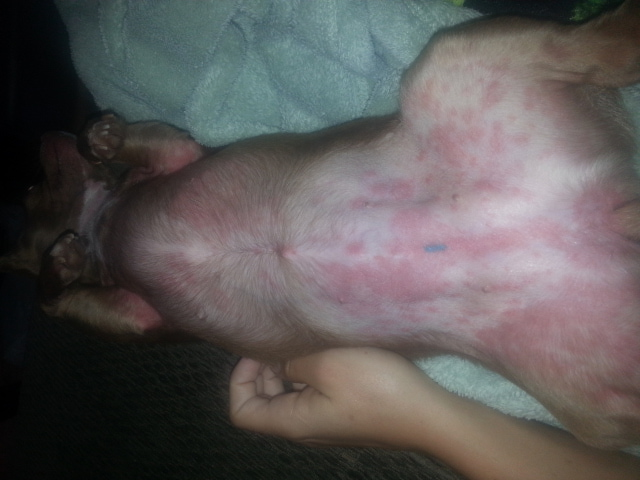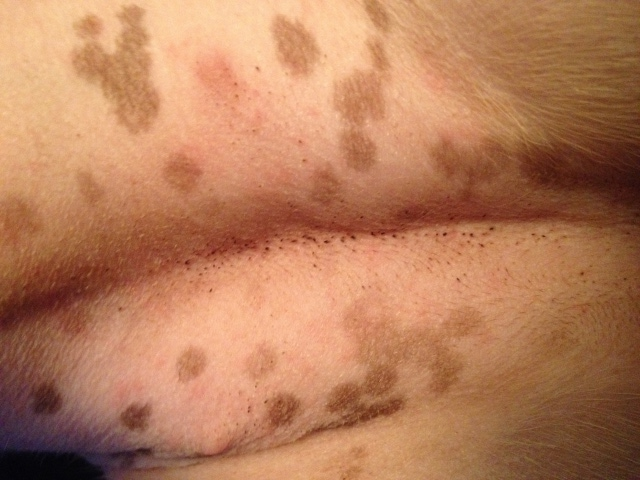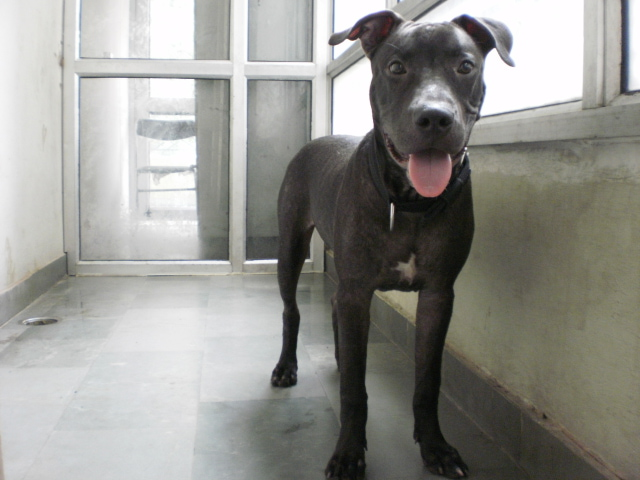QuestionI have a 15 week old puppy that is at the vets being treated for parvo for the past four days. The parvo test came up a strong positive. He hasn't had a fever or bloody diarrhea. He has been on IV fluids and the vet had us pick up Tamiflu for them to give. We went to see him today and he was wagging his tail, giving us kisses and "talking" which he wasn't doing when we brought him there. The vet said my puppy had pulled out his IV catheter and he still had to put it back in but he has food and water in his cage. He told us yesterday that the puppy's stool had been normal then when we went there today to visit and ask when he could come home he all of a sudden "developed" diarrhea. The vet says he is still vomiting food but he is being given oral medications which he hasn't mentioned him vomiting up. He is very vague on any medications the puppy is getting and we want to bring him home to continue his treatment. He has improved in the past four days and I think he would feel better at home in his own surroundings. If his conditions hasn't worsened since he's been at the vets and he's improved and staying stable would continuing his treatment at home be safe?
AnswerSandra -
I do not think it is a good idea to have your puppy treated at home for parvovirus infection.
You sound as if you do not trust that your veterinarian is telling you the truth about your dog's symptoms. The symptoms your describe sound quite accurate - dogs with parvo can change from being happy pups to vomiting pups within a few minutes. Diarrhea can appear to come on very suddenly, but that is how the course of the disease progresses. Dogs with parvo can appear to be getting better, but can rapidly get worse without the right amount of fluid therapy and aggressive antibiotic therapy; at the same time, dogs that are being treated properly can also regress very rapidly. Parvo is the type of disease that can be quite unpredictable. The symptoms can be quite mild or very severe, depending on the your dogs' breed. Rottwielers, Dobermans, Staffordshire Terriers(otherwise known as pitbulls) can be very vulnerable to the disease and often succumb to the disease regardless of the level of treatment they receive.
Dogs with parvo need IV fluid therapy because they should not be fed orally if they are vomiting and have diarrhea. Parvo attacks the cells of the intestines and literally destroys them. For that reason, the intestines should be allowed to rest; feeding your pet with IV fluids is the most effective way to let the intestines rest and regenerate. Dogs that are receiving IV therapy should be hospitalized in order to ensure they are getting the correct amount of fluids and that the fluid line is maintained properly.
The relationship between you and your veterinarian should be based on trust; he/she is there to help you take care of your pet. If you are not comfortable with that person, find another veterinarian that you trust. It will help to make medical decisions about treating your pet much easier.
Best Regards,
Charlotte Sherrell, DVM

 Guinea Pig Eyes
Question
Bad Eye
Hello, yesterday we purchased a
Guinea Pig Eyes
Question
Bad Eye
Hello, yesterday we purchased a
 skin rash
Question
Chihuahua Rash chihuahua rash
My
skin rash
Question
Chihuahua Rash chihuahua rash
My
 Female Tortie cat 7 years old
Question
Sadie
My cat sadie gets a re-occuring sore in
Female Tortie cat 7 years old
Question
Sadie
My cat sadie gets a re-occuring sore in
 Black spots on belly
Question
Spots
My 4 month old pit bull mix has t
Black spots on belly
Question
Spots
My 4 month old pit bull mix has t
 ivermectin dosage
QuestionQUESTION: Can ivermectin tablet 10mg be adminis
ivermectin dosage
QuestionQUESTION: Can ivermectin tablet 10mg be adminis